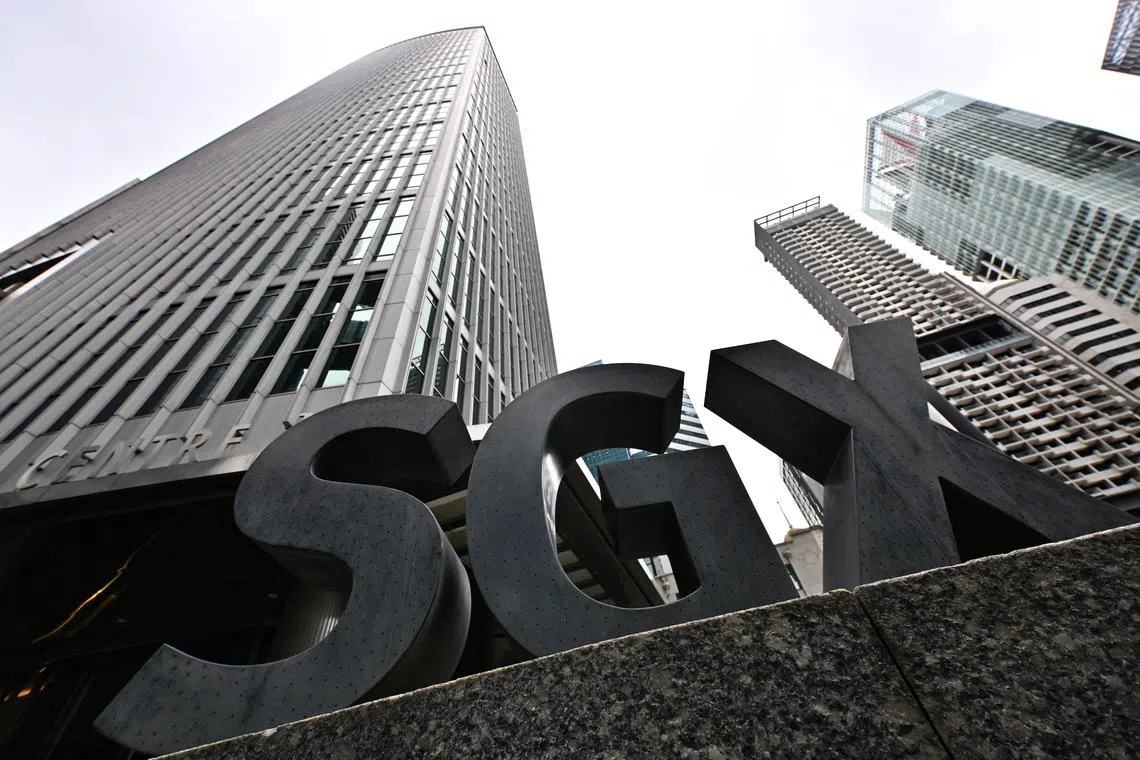Singapore stocks enjoy gains amid festive cheer, STI up 0.9%
Sign up now: Get ST's newsletters delivered to your inbox

Gainers trounced losers 311 to 248 after 1.2 billion shares worth $810 million changed hands.
ST PHOTO: LIM YAOHUI
Yong Jun Yuan
Follow topic:
SINGAPORE – Local investors are getting a festive spring in their step, with sentiment appearing to improve ahead of the upcoming holidays.
Gains on Wall Street overnight clearly focused minds here and helped send the benchmark Straits Times Index (STI) up 0.9 per cent or 27.82 points to 3,140.32 on Dec 22. Gainers trounced losers 311 to 248 after 1.2 billion shares worth $810 million changed hands.
Regional markets were mixed after the solid rises on Wall Street, where all three indexes rose between 0.9 and 1.3 per cent and set up the S&P 500 for its eighth consecutive week of gains.
Hong Kong’s Hang Seng fell 1.7 per cent and South Korea’s Kospi edged down 0.02 per cent, but Japan’s Nikkei 225 rose 0.1 per cent. Australian stocks closed flat but the index was up for a fourth straight week and is now just 131.2 points from its record high.
Phillip Securities senior research analyst Glenn Thum maintained “overweight” on local banks.
He noted that local interest rates have continued their gradual incline, with the three-month Singapore Overnight Rate Average, or Sora, up four basis points month on month to 3.75 per cent in November.
While overall loans to Singapore residents in all currencies fell 4.19 per cent year on year in October, he said this was the smallest decline in seven months. Mr Thum said: “Bank dividend yields are attractive with upside surprises due to excess capital ratios and a push towards higher return on equity.
“Stable economic conditions and rising interest rates remain tailwinds for the banking sector.”
OCBC Bank was the STI’s top gainer, rising 1.9 per cent to $12.66. DBS Bank gained 1 per cent to $32, and UOB advanced 0.6 per cent to $27.60.
DFI Retail Group was at the bottom of the STI table for the second day in a row, losing 2.3 per cent to US$2.14. THE BUSINESS TIMES

